Submitted by WA Contents
China Pavilion presents CO-EXIST, bridging traditional Chinese philosophy and modern technology
Italy Architecture News - May 13, 2025 - 05:15 2125 views

Ma Yansong, the founder and principal partner of MAD, curated the CO-EXIST China Pavilion at the 19th International Architecture Exhibition at the 2025 Venice Architecture Biennale. The China Pavilion officially opened at the Arsenale on Friday, May 9.
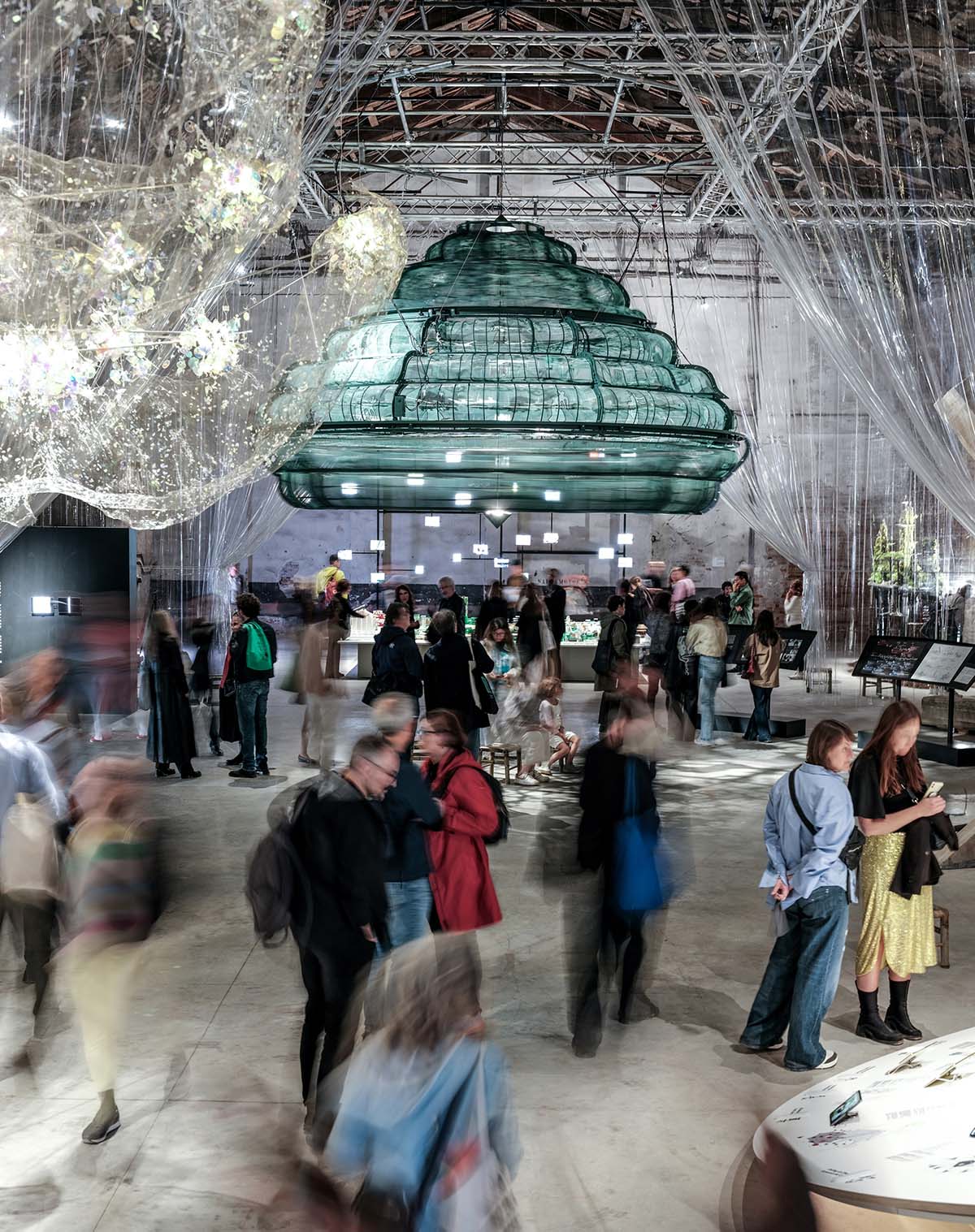
As the world transitions from industrial civilization to the age of intelligence, CO-EXIST examines the changing relationship between ancient Chinese spiritual philosophy and rapidly advancing modern technology.
Deputy Mayor of Venice Massimiliano de Martin, former Italian Deputy Foreign Minister Laura Fincato, Chinese Ambassador to Italy Jia Guide, representatives of the Hong Kong and Macau Special Administrative Regions of China, curator Ma Yansong, participating architects, and invited guests were all welcomed at the opening ceremony.
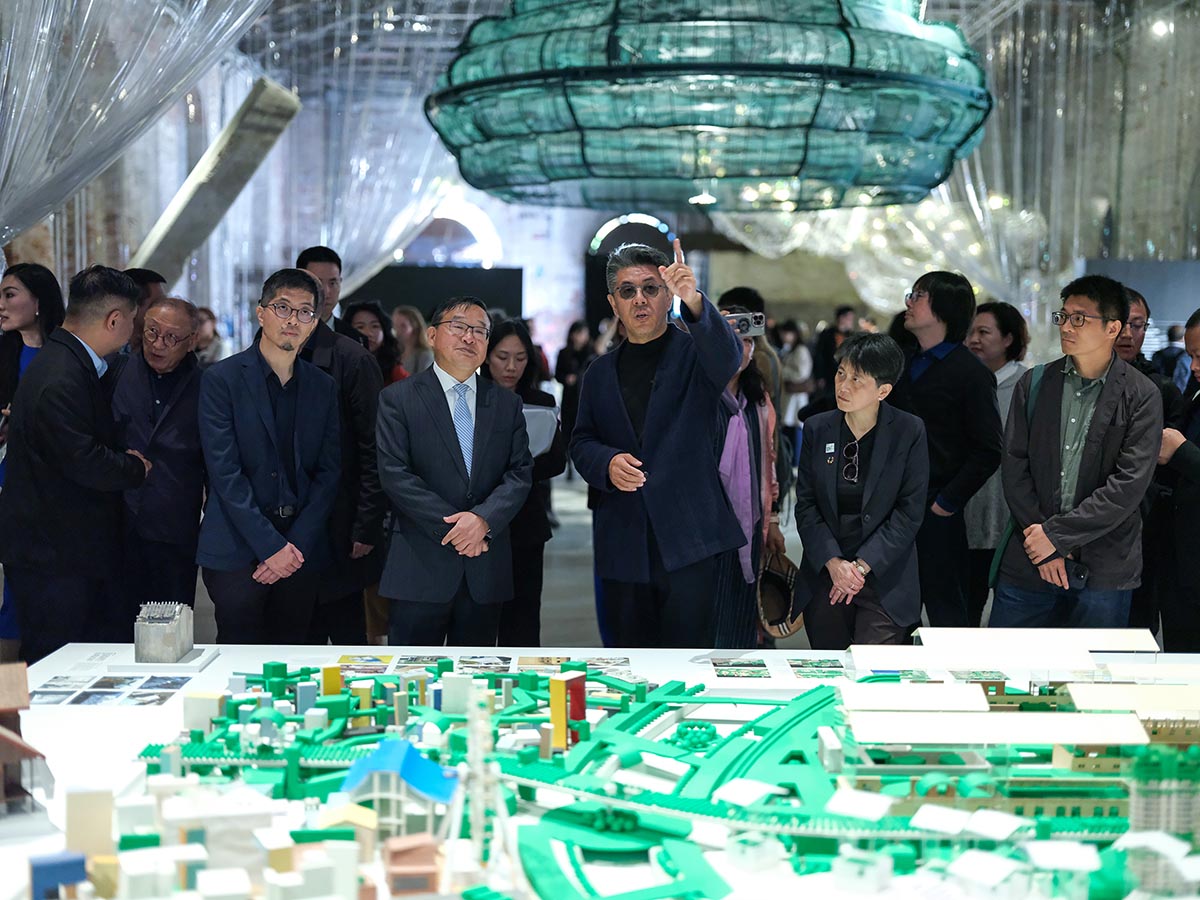
"We hope this collective presentation signals a process of transformation—one that is seen and discussed openly—revealing the younger generation’s interpretation of traditional Chinese culture, their proposals rooted in modernity, and their visions for the future," said said Ma Yansong, the founder of MAD.
"We believe we are entering an era that is diverse, humanized, and emotionally rich. In this context, we aim to offer ideas from China—so that Chinese wisdom may be shared with the world," Yansong added.
The pavilion, which works with educational institutions, research facilities, tech startups, and creators of digital ecosystems, is a collective voice of up-and-coming Chinese architects.
Adopting a "one place, one solution" philosophy, they dismantle time, discipline, and methodology in order to present ideas that challenge modern urban development, reflect traditional Eastern roots, and envision new futures for China's cities, dwellings, and lifestyles.
Featured Exhibits
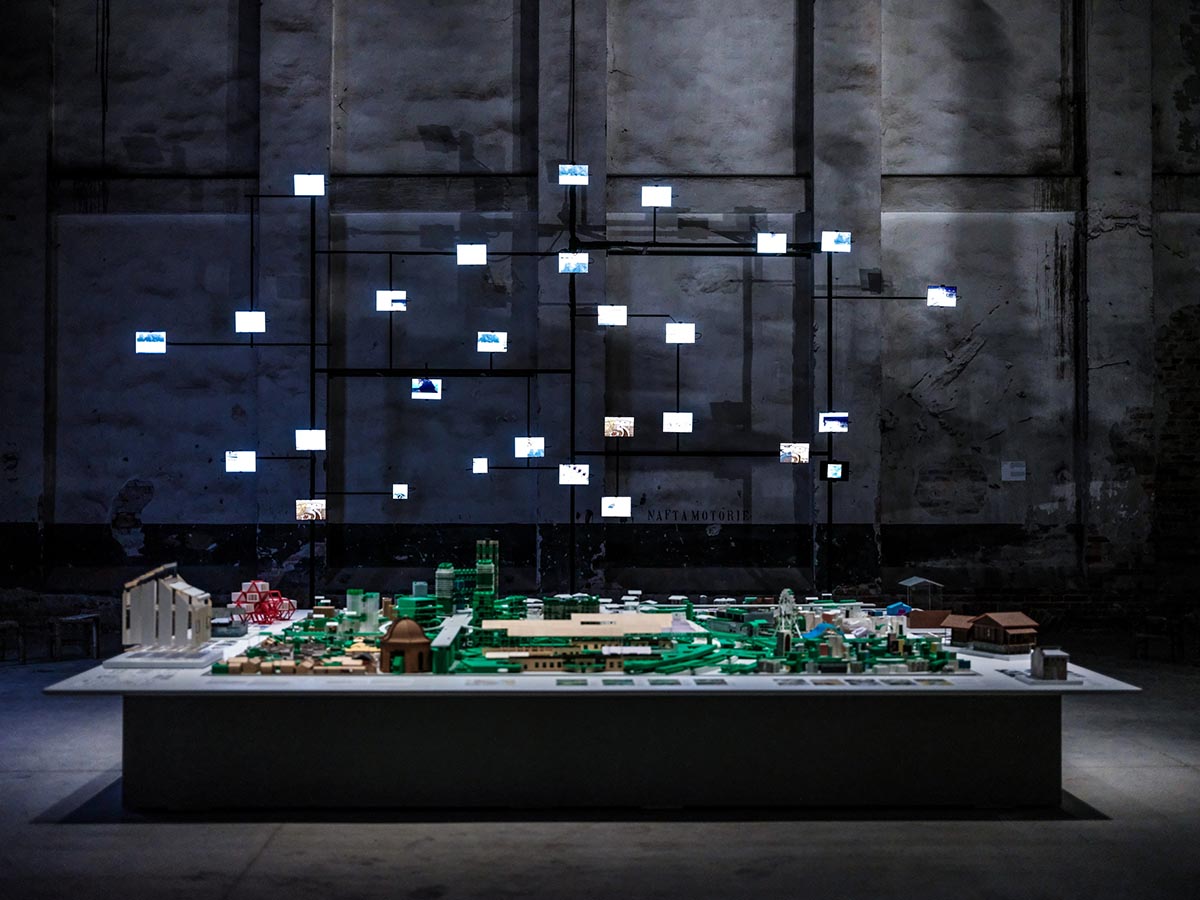
12 Rhythms in Liangzhu
China Academy of Art, School of Communication & Design
The music and sacrifice rites of the Liangzhu city-state, an early cradle of Chinese culture, are interpreted in this artwork as a conversation between heaven, earth, and humanity. The composition creates a resonant ritual atmosphere that connects ancient memories to hypothetical futures through the use of traditional instruments including chimes, guqin, and ceramic flutes.
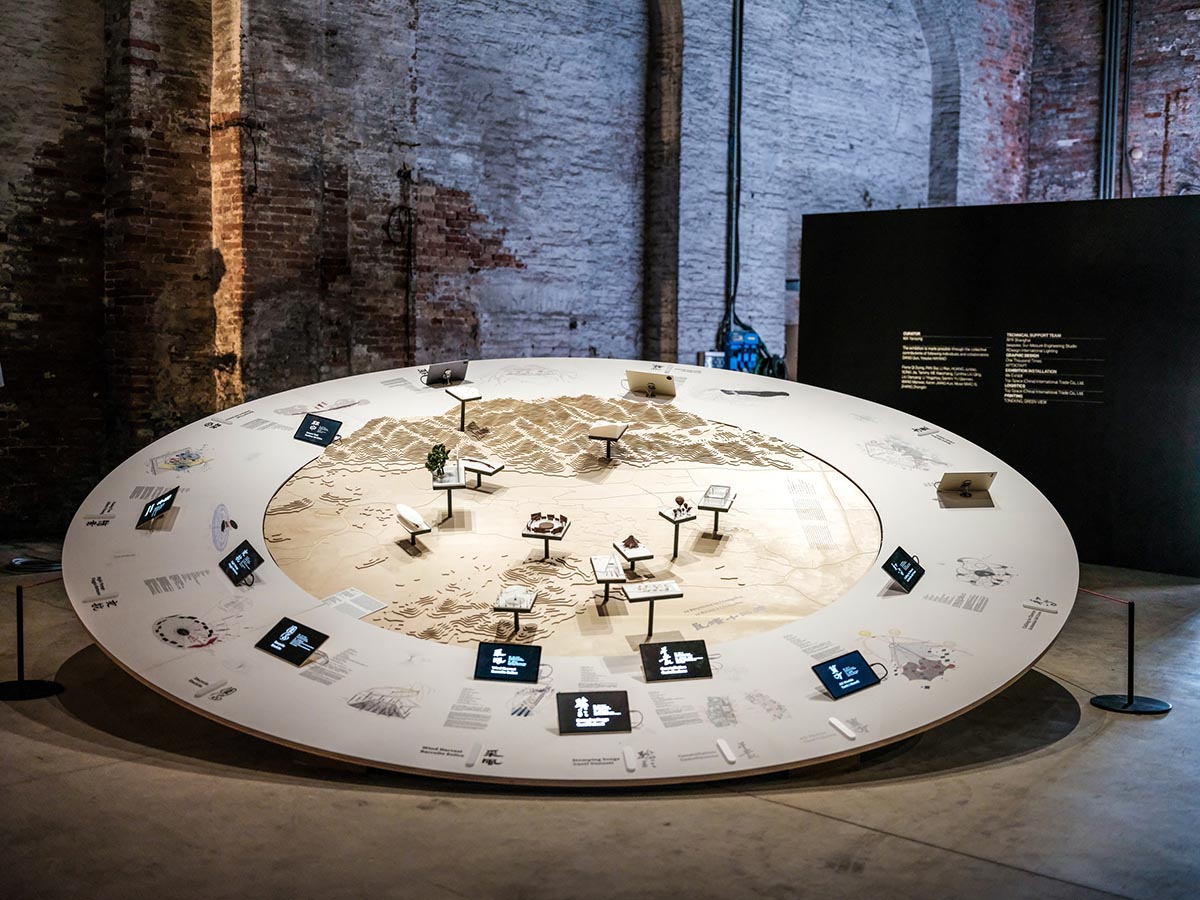
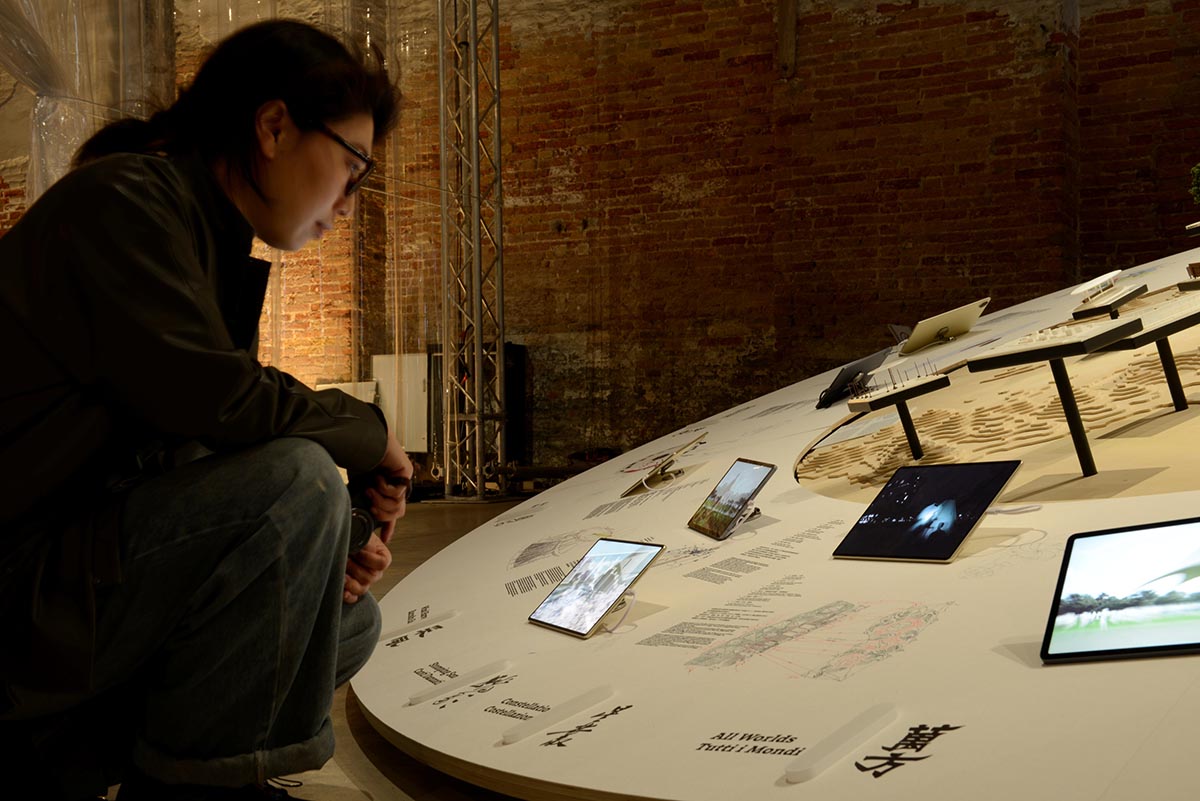
Image courtesy of MAD
Dunhuang·Con-Stella-Tion
Atelier Alter Architects PLLC
In this work, Dunhuang's multireligious vaults are reimagined as a floating metropolitan universe. Every building celebrates peace and embraces cultural diversity, reflecting the cosmology of a unique civilization.
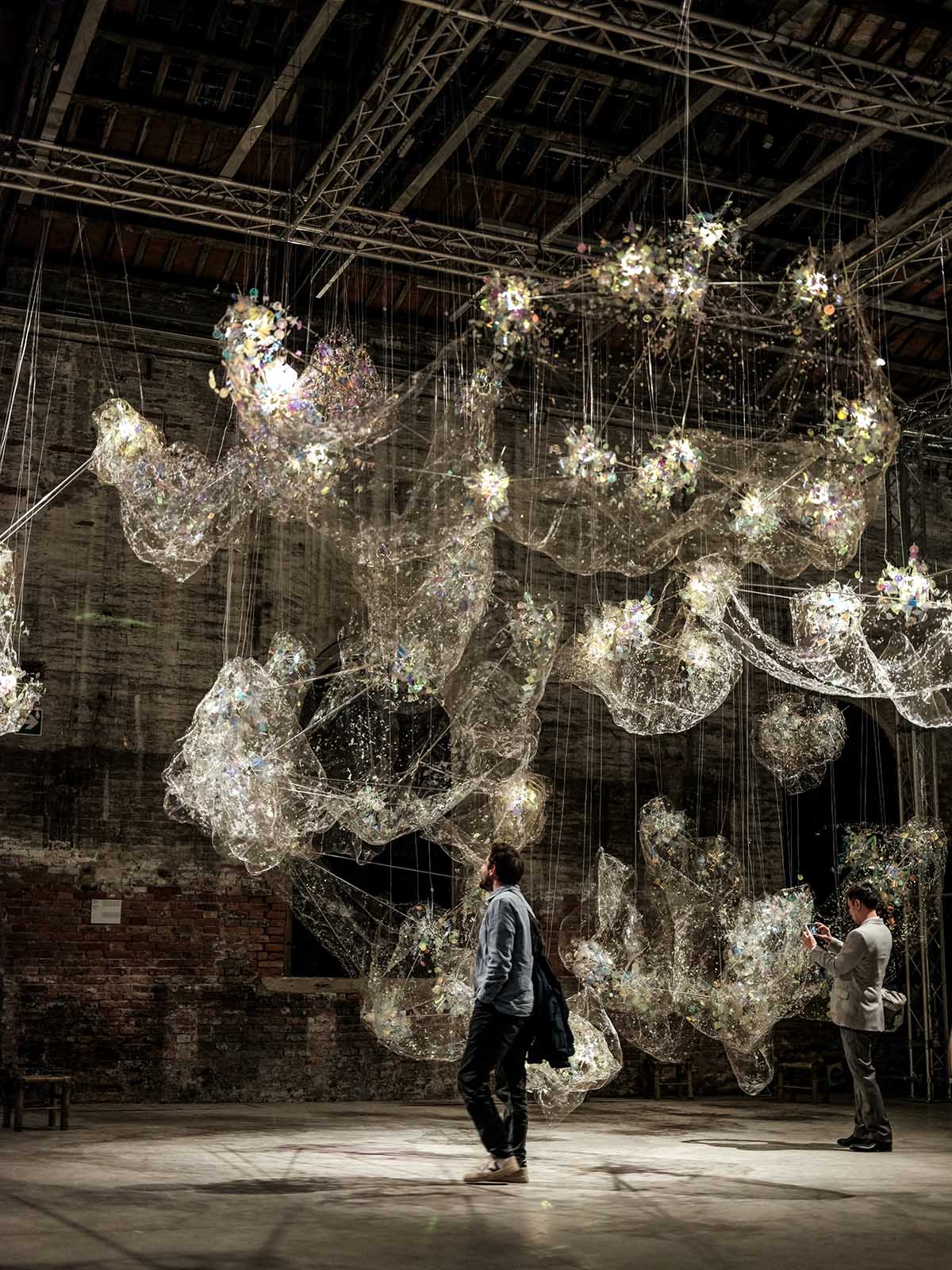
Image courtesy of MAD
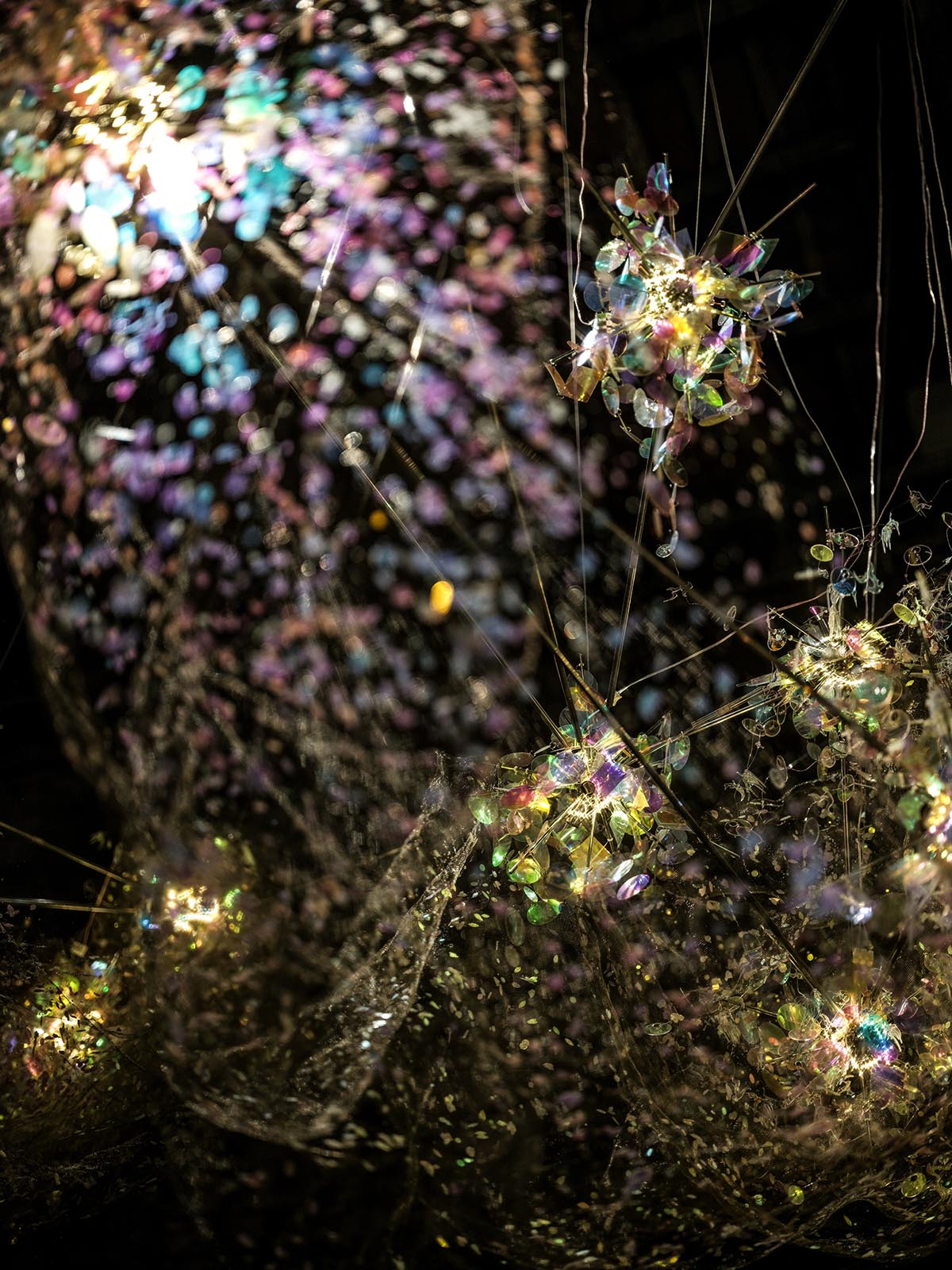
Spring, Along Beijing Central Axis
Dunes Workshop
This video installation uses point cloud animation to poetically map ten important locations along the Central Axis, fusing human and natural soundscapes to visualize the axis as a living example of ancient Chinese urban planning. This comes after Beijing's successful 2024 bid to list its Central Axis as a UNESCO World Heritage site.
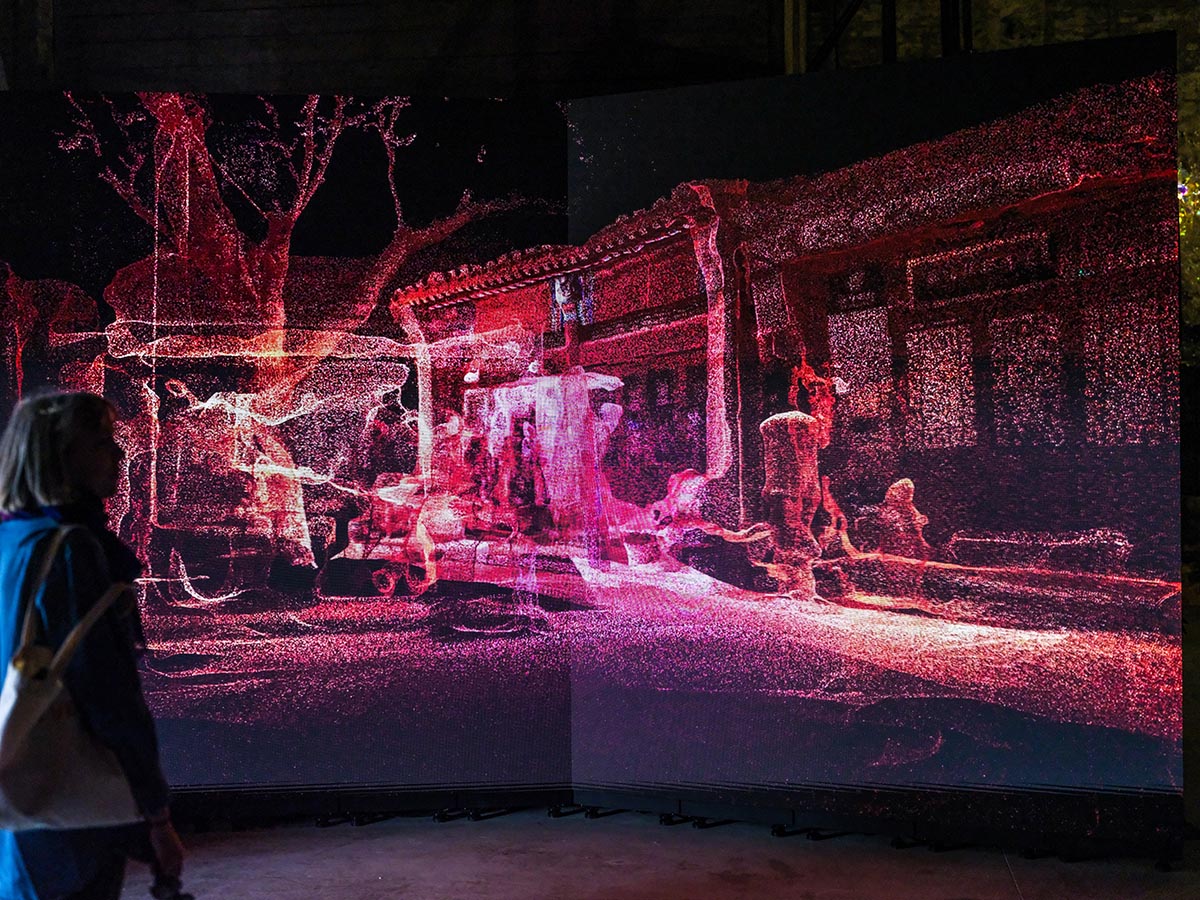
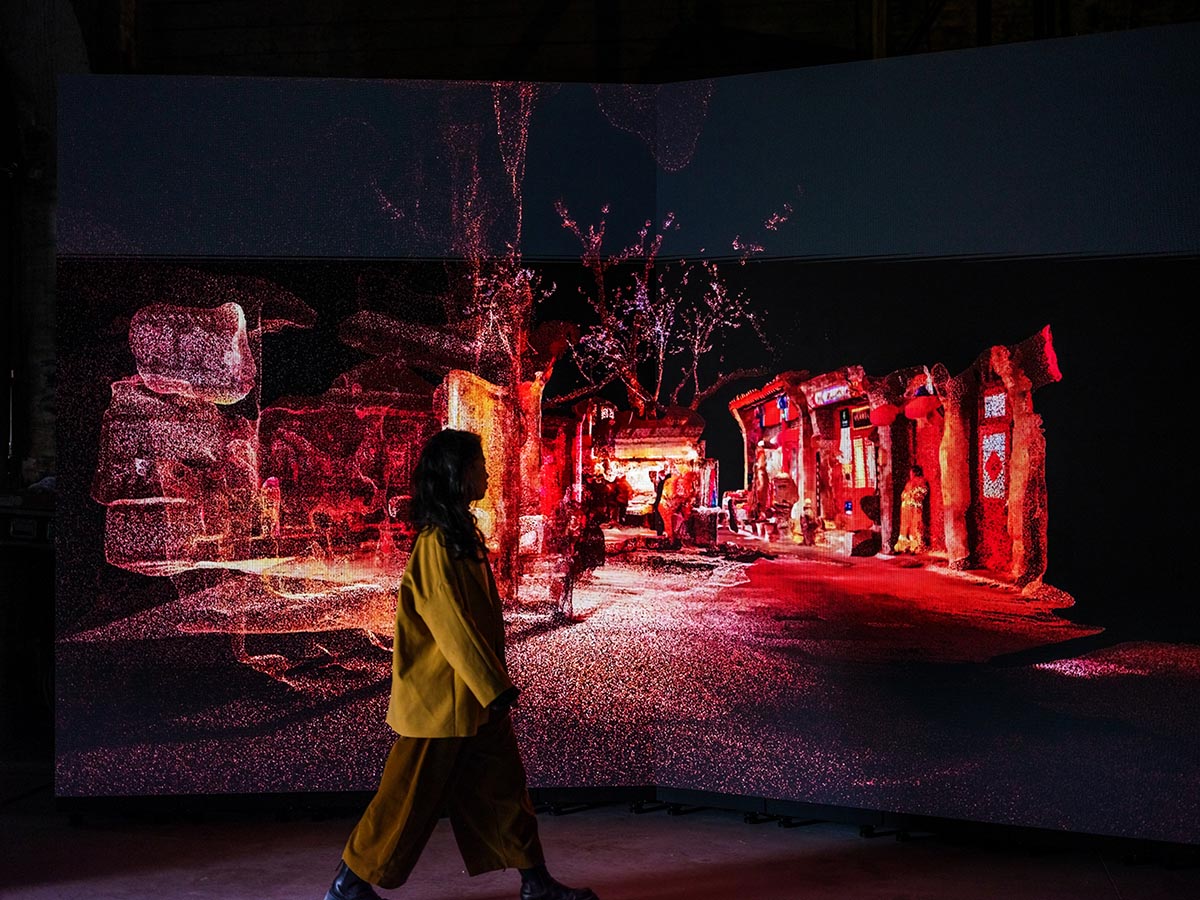
Vault of Heaven
Wang Zigeng, Central Academy of Fine Arts
Inspired by the "sky" of ancient Chinese well building, green construction netting—which is common in China's rapidly urbanizing country—is turned into a cascading dome. The piece combines shattered recollections of industrialization with a spiritual conversation between people and the universe.
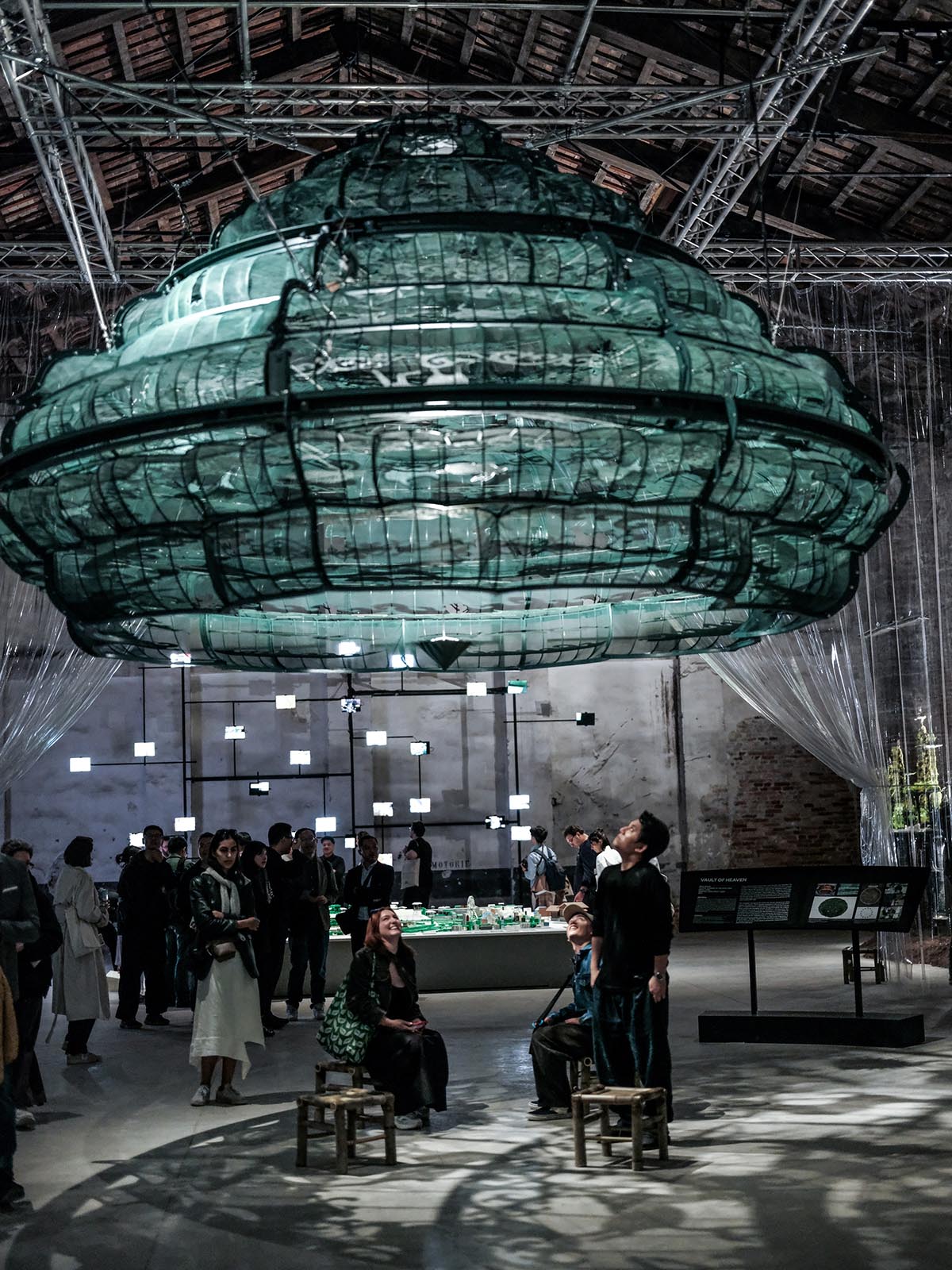
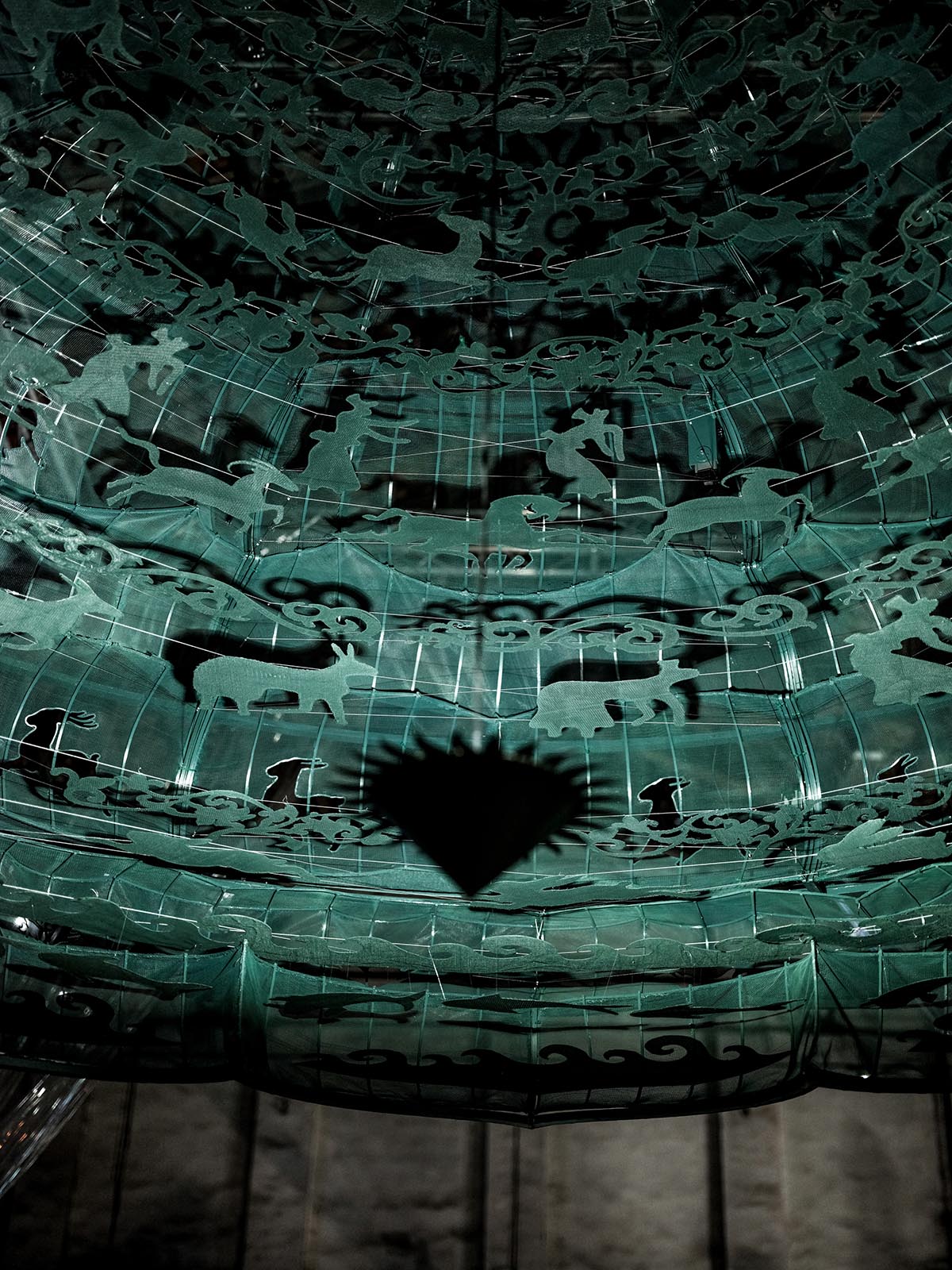
Concrete Spolia: Reuse of Building Waste
[S]Equilibrium Lab, The Chinese University of Hong Kong
This installation uses cutting-edge industrial techniques to reuse concrete construction refuse from Venice. The resulting sculpture preserves the structural logic of its original components while showcasing the possibilities of sustainable reuse.
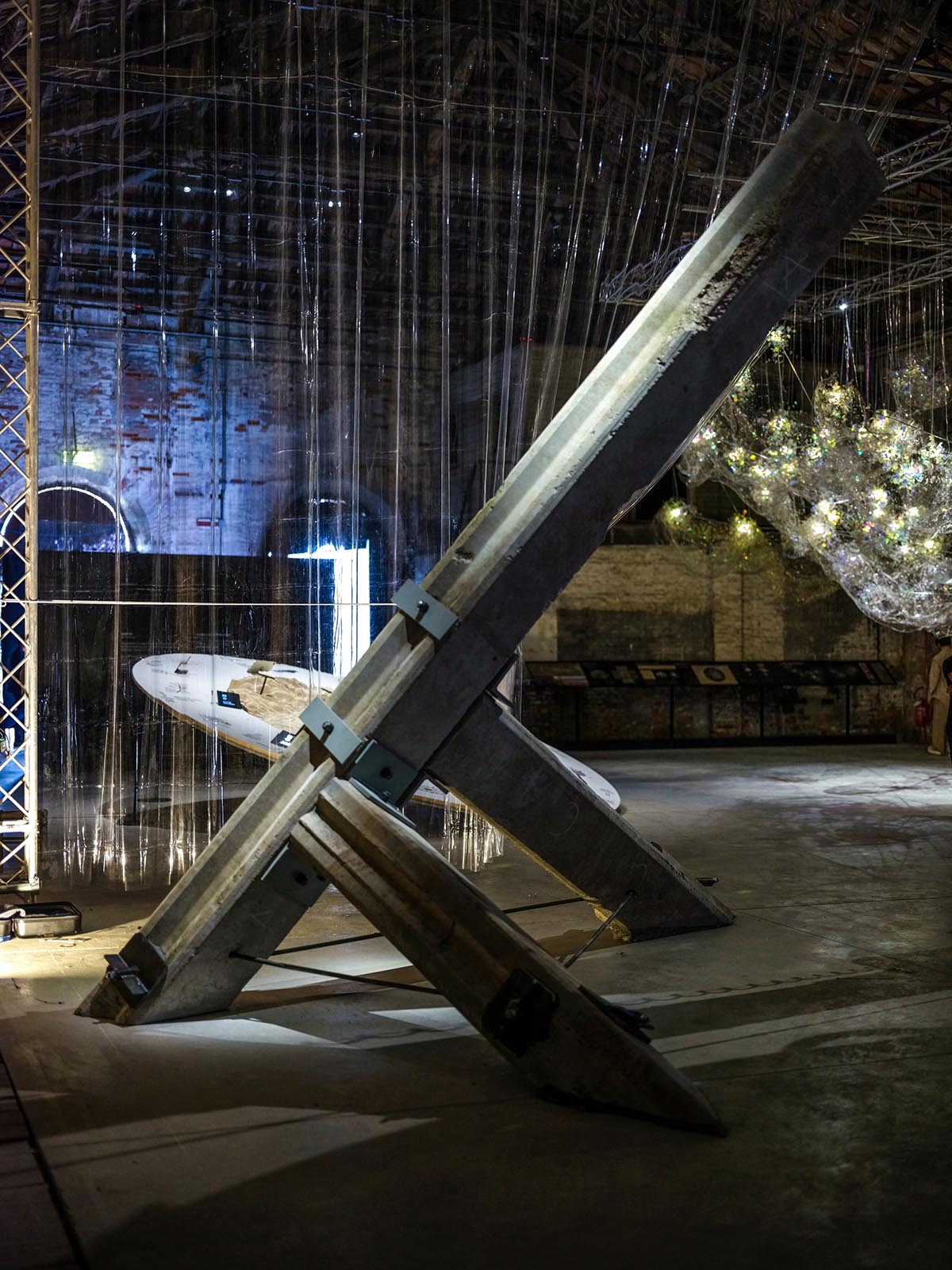
Renew City Plugins
People’s Architecture Office; Long Ying Research Group, Tsinghua University
This joint initiative uses open-source spatial analysis and artificial intelligence to investigate urban redevelopment. After then, "plugins" are used to improve neglected city areas, boosting productivity and bringing life back to the streets.
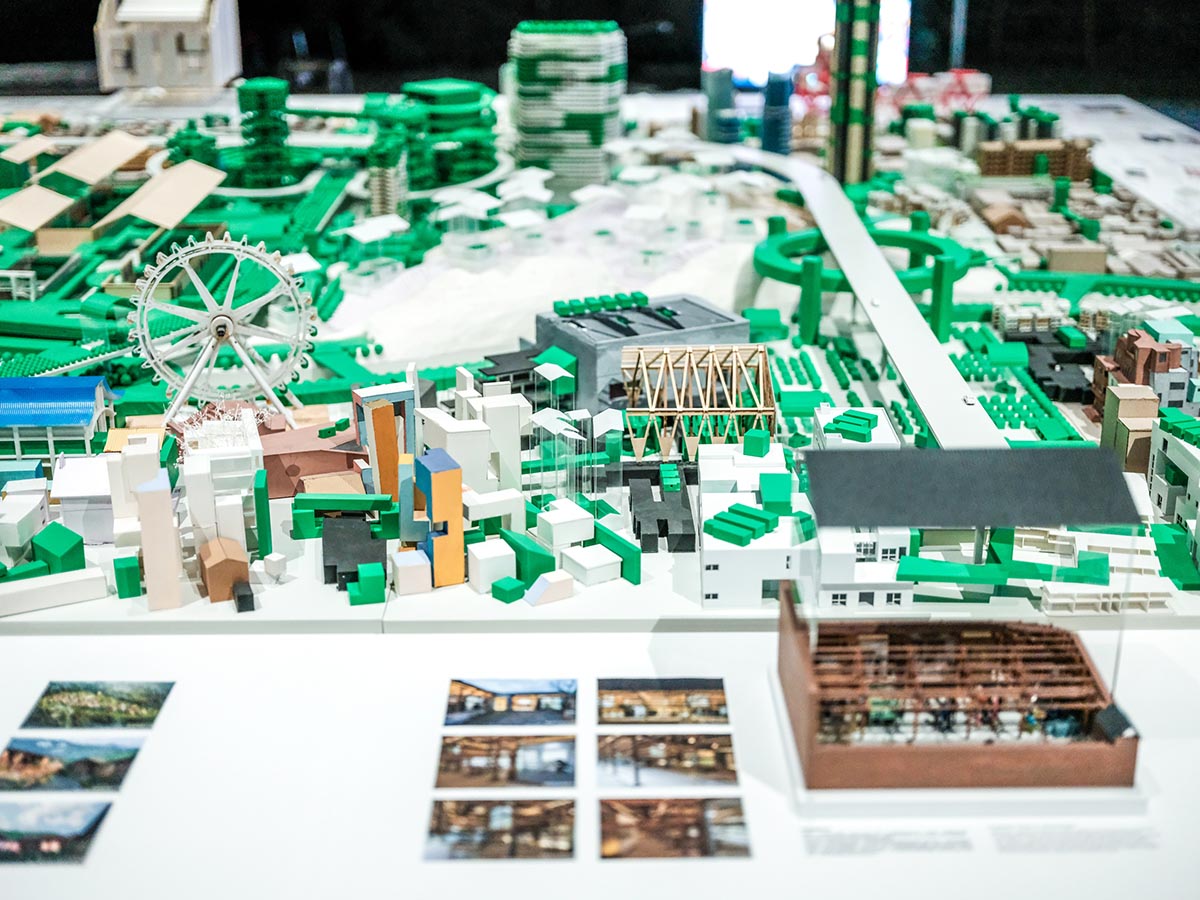
City in China – Nature of All Things
WAY Studio; Tencent Research Institute
This idea reimagines skyscrapers as living networks by integrating botanical systems with upward transit infrastructures to create vertical urban ecologies in the middle of crowded megacities.

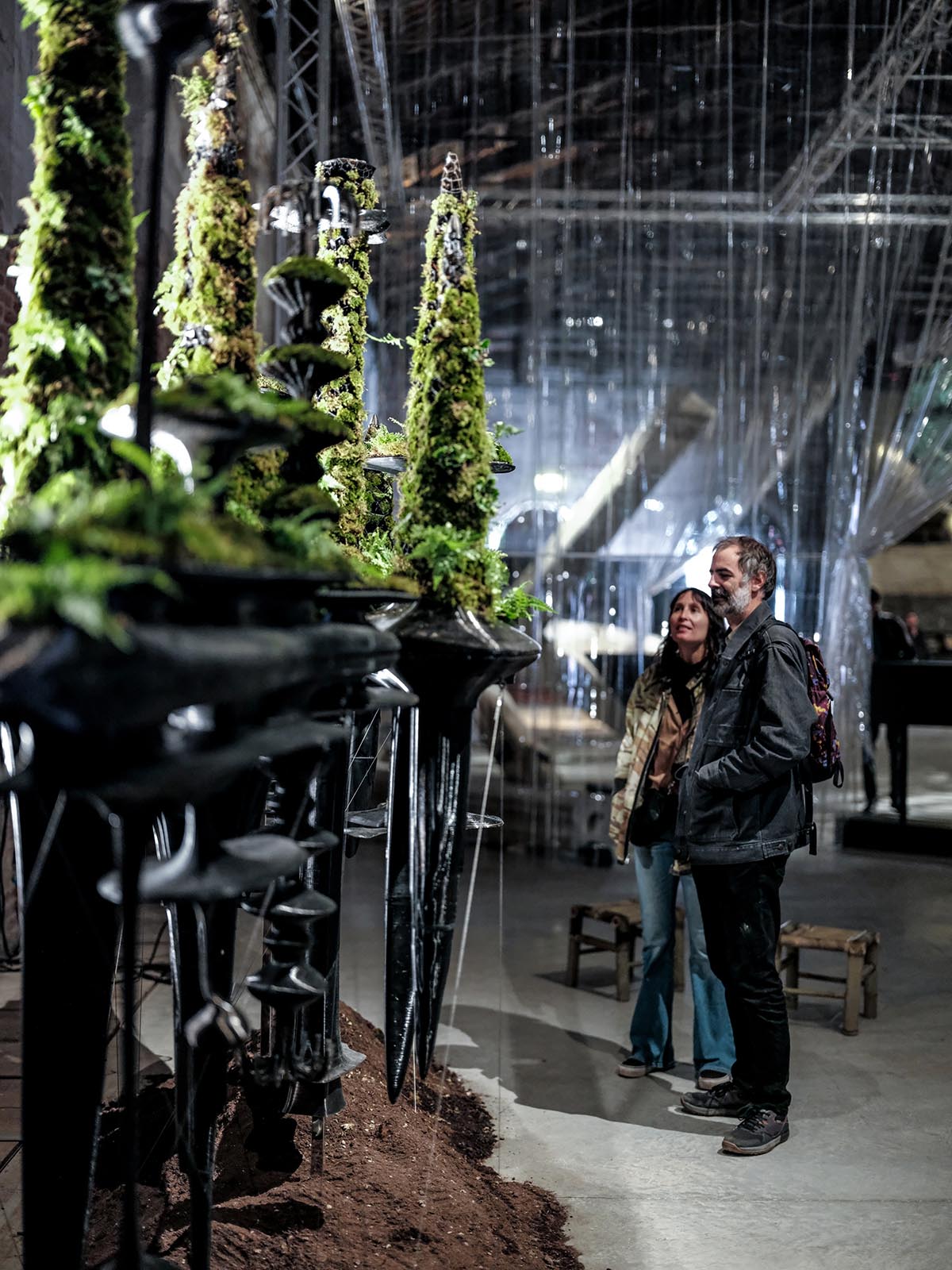
Open Source City
Red Product Design Center (Xiaohongshu/The Rednote)
This proposal transforms digital behavior into dynamic public places by transforming social media interaction data into spatial design features, repositioning regular users as co-authors of the city.
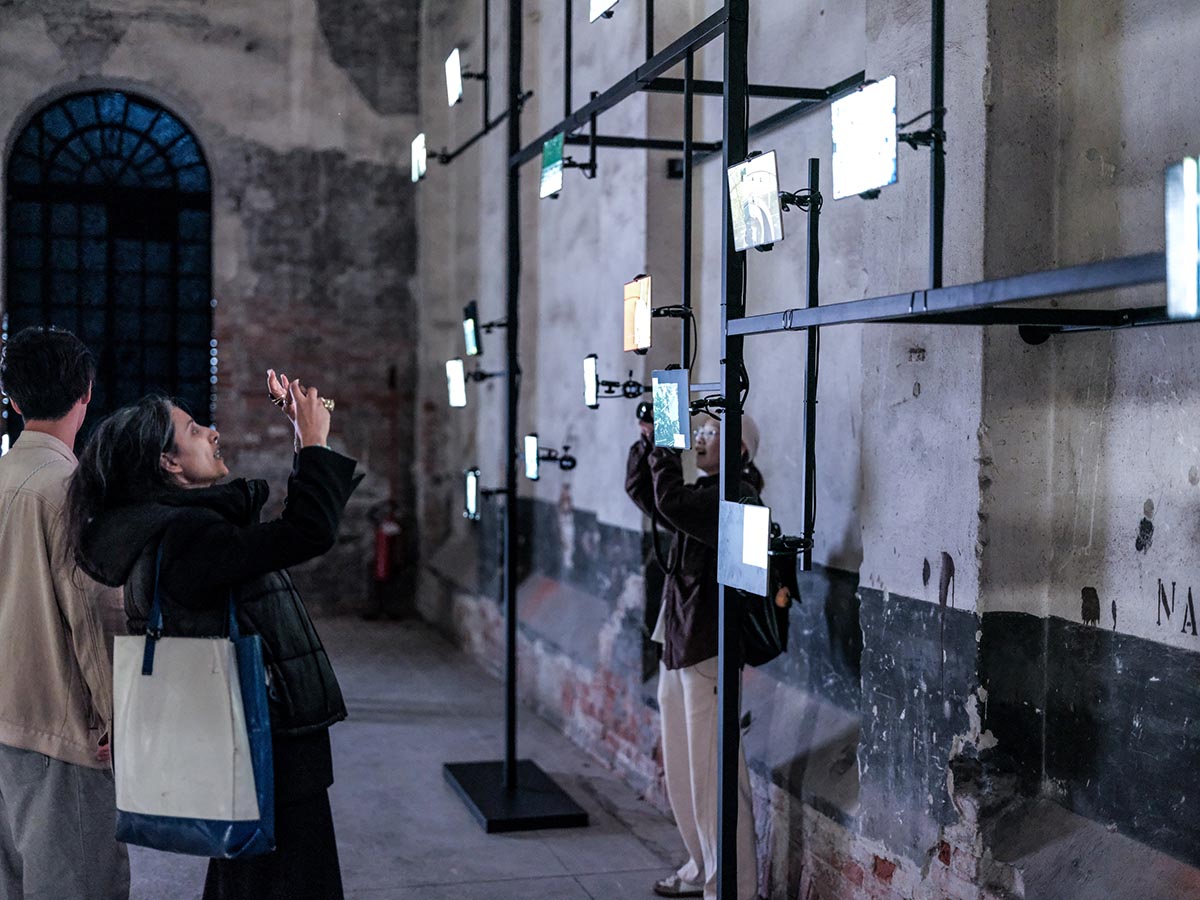
Interchange City
Drawing Architecture Studio
The work celebrates unofficial, often ignored spaces under highway overpasses. Alternative urban narratives and human life are shown in these fringe zones.

Chinese Paper Umbrella
In order to address the current ecological challenges, MAD explores traditional Chinese natural philosophy. Their installation delivers a sensory microclimate that combines environmental logic and aesthetics by fusing traditional oil-paper umbrella processes with modern building shapes.
The China Pavilion at the 19th International Architecture Exhibition remains open through November 23, 2025.
Find out all exhibition news on WAC's Venice Architecture Biennale page.
Pavilion Details:
Exhibition name: CO-EXIST / Pavilion of China at the 19th International Architecture Exhibition—La Biennale di Venezia
Dates: May 10, 2025 - November 23, 2025
Venue: Arsenale - Magazzino Delle Cisterne, Castello 2169/F - 30122 Venezia, Italy
Curator: Ma Yansong
Participating Architects: Atelier Alter Architects PLLC , Zhang Yingfan, Bu Xiaojun
Drawing Architecture Studio,Li Han, Hu Yan, Zhang Xintong
Dunes Workshop , Li Yalun, Chen Feiyue, Zhang Daisy Ziyan
People’s Architecture Office, Long Ying Research Group, School of Architecture, Tsinghua University
MAD, Ma Yansong, Dang Qun, Yosuke Hayano
RED Product Design Center
China Academy of Art, School of Communication & Design, Jiang Jun
[S]Equilibrium Lab, The Chinese University of Hong Kong, Wang Shuaizhong
Wang Zigeng, Central Academy of Fine Arts
WAY Studio,Zheng Tao, Fernie Lai
Authorities:
Organizer: Ministry of Culture and Tourism of the People's Republic of China
Co-Organizer: China International Culture Association
Commissioner: China Arts and Entertainment Group Ltd. (CAEG)
Executive Agency: China International Exhibition Agency
Supporter: Embassy of the People's Republic of China in the Republic of Italy
Sponsors:
Chief Intelligence and Technology Partner: Huawei
Chief Lighting Partner: OPPLE Lighting
Co-Presenting Partner: China Construction Eighth Bureau Technology Construction Co., Ltd., NorthGlass
Exclusive Gala Dinner Partner: Langjiu
Contributing Partner: QZY Models
Supported by: Far East Façade, Unilumin Group Co., Ltd.
Team:
The exhibition is made possible through the collective contributions of the following individuals and collaborators:
Dang Qun, Yosuke Hayano
Fiona Qi Ziying, Pan Siyi, Li Ran, Huang Juntao, Zhu Yuanlong, Valentina Olivieri, Zheng Chengwen, Song Jia, Tammy Xie Xiaozhang, Cynthia Liu Qing, Liu Danyang, Li Yingzhou, Sammi Yu Qiannan, Wang Manwei, Aaron Jiang Kuo, Muse Miao Si, Zhang Zhonglin
Collaborators and Supporters:
Technical Support Team: RFR Shanghai, bespoke. Sur-Mesure Engineering Studio, RDesign International Lighting
Graphic Design: One Thousand Times, aptdotapt
Exhibition Installation: We Exhibit, Top Space (China) International Trade Co., Ltd
Logistics: Top Space (China) International Trade Co., Ltd
Printing: TONEKING, GREEN VIEW
Editing and proofreading:Deng Yingying, Wang Wenyang
The top image in the article courtesy of MAD.
All images © demone unless otherwise stated.
> via MAD
China Pavilion exhibition pavilion Venice Architecture Biennale

